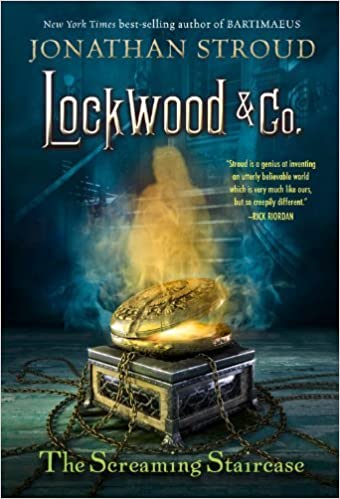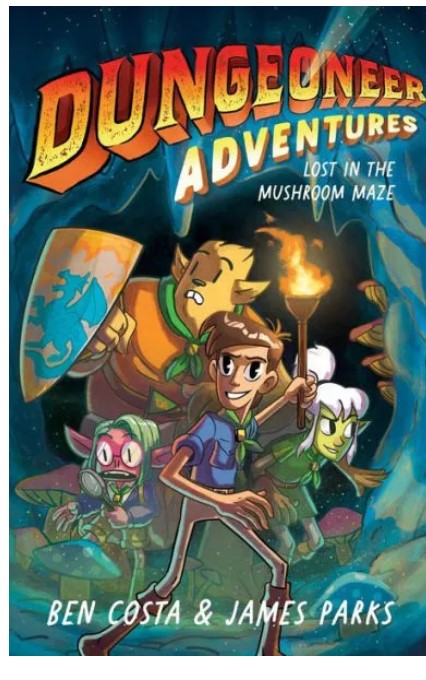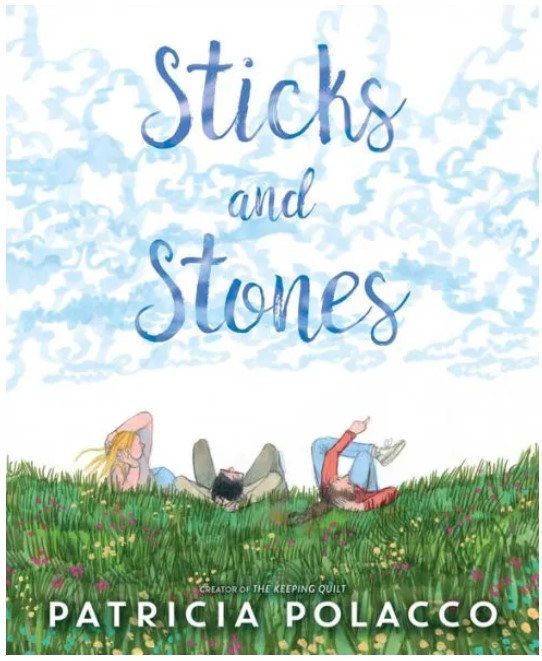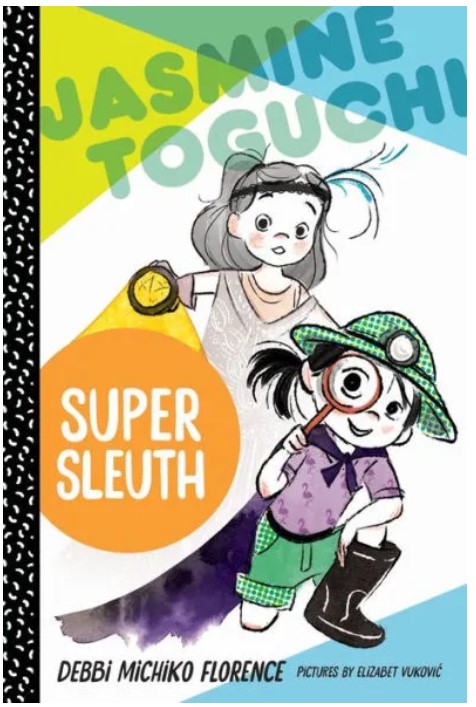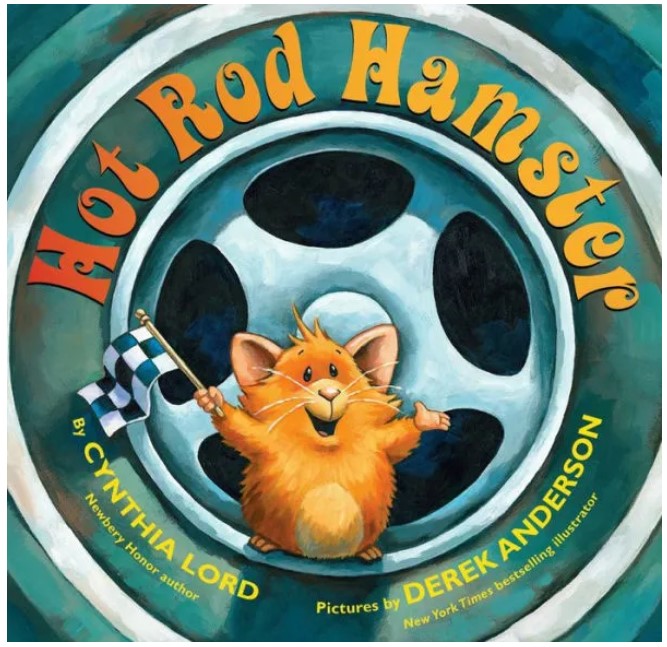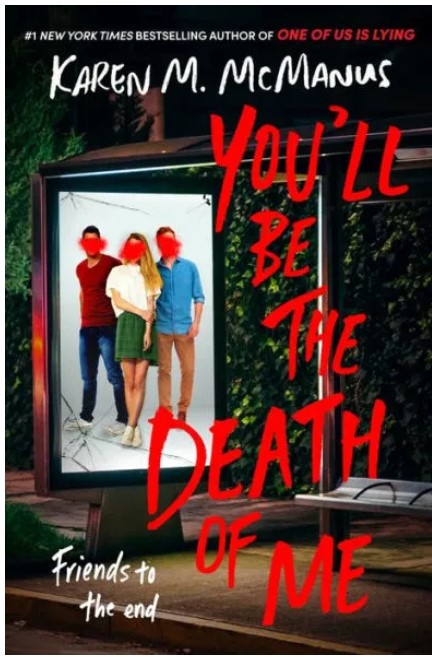In London, ghosts haunt the living and only children have the ability to sense these otherworldly beings and remove them from our world. Lucy Carlyle and her co-workers, Anthony Lockwood and George Cubbins, are agents working for Lockwood & Co., an independent agency without adult supervisors. After an assignment goes wrong and the agency burns a client’s property down, the trio are forced to investigate the most haunted house in England: Combe Carey Hall.
The suspicious circumstances behind Combe Carey Hall might place Lockwood & Co. in even more danger than they realize, especially as they attempt to solve the mystery behind a decades-old murder. Will Lucy and her co-workers make it out of Combe Carey Hall alive? Can they help a restless spirit pass on? Or will they become just another one of the property’s victims? And what is the mysterious owner of the hall hiding?
The novel is written from Lucy’s point of view and, while she comes off as far more mature than the average teenager, her insecurities and snarky personality make her relatable without compromising her likability. The banter and trust between Lucy, Anthony, and George make each of the characters shine. Every character has strengths and weaknesses that complement each other, and this elevates their teamwork skills. In addition, the dynamic between the trio helps emphasize the importance of relying on others while also trusting in one’s own abilities. After the group escapes Combe Carey Hall alive, Lockwood even says, “I trust your talent and your judgment, and I’m proud to have you on my team.”
Stroud’s worldbuilding around the supernatural elements of this alternate London is extremely interesting and intricate. A variety of different ghosts are introduced, plus several government and private agencies that investigate the paranormal. Stroud deftly addresses how the appearance of ghosts would impact London on a wider scale. To help readers understand this complicated world, a glossary of new terms is used, which includes specific agencies and specters’ abilities.
The Screaming Staircase is an excellent introduction to more macabre horror stories, especially for tweenagers who love longer novels. The book’s grim atmosphere is more intense than most novels geared toward young children, with consistent descriptions of death and its central mystery being related to murder. However, the descriptions of violence never breach into anything too graphic, and Stroud’s light-hearted dialogue ensures that the book is never too grueling. Nevertheless, the horror elements, while toned down for a younger audience, are still present. Younger readers could easily get nightmares, so consider avoiding this book if your child is easily frightened.
A double-edged facet of the book is its lack of a true moral. The Screaming Staircase is not trying to convey any deep messages or complex ideas, but that lack of intention helps ensure the novel is a fun and down-to-earth read. The fun dynamic between Lucy and her co-workers, interesting ideas presented in a haunted London, and macabre elements make Lockwood and Co.: The Screaming Staircase an excellent introduction to YA horror.
Sexual Content
- When George goes looking through Lucy’s armoire, he says, “Well, there’s nothing in here but some charming tops and skirts and. . . Ooh, Lucy-I’ve never seen you wearing that.”
Violence
- When discussing the potential cause of a ghost’s manifestation, Lucy discusses how a man, “Fell down the stairs and broke his neck. . . He must’ve fallen with tremendous f-[orce].”
- Lucy thinks about what happens to agents who forget to properly stock equipment. “A girl at Rotwell’s had died the previous week after forgetting to restock her magnesium flares.”
- Lucy reveals that decomposed human remains are often the source of a ghost’s manifestation, “Most often. . . 73% of the time . . . it’s associated with what the Fittes Manual calls ‘personal organic remains.’ You can guess what that means.”
- During an investigation, Lucy sees a corpse. She describes it as “a thing of bones, bared teeth, and shrunken skin, dark and twisted as burnt wood . . .”
- Both of Lucy’s parents were abusive. Her father’s “hands were hard and swift in punishing any of his children who disturbed his usual taciturn indifference.” Lucy’s mother also “beat [her] sore.”
- Lucy’s mother tells the story of a girl who committed suicide. The girl “waded out into the reeds, lain down in the stream, and drowned herself.”
- Lucy and Lockwood discuss a variety of serial killers, including “the coin-in-the-slot killer” and the “one who kept heads in the fridge.”
- When investigating the history of a house, George finds out that “in May 1926, the owner, a Mr. Henry Kitchener, had hung himself somewhere on the premises.”
- The caretaker of Combe Carey Hall describes how a previous owner was a serial killer who decorated the hall with the skulls of his victims. “When he’d finished off each one, he set their skulls on the steps of the central staircase with candles burning behind the eye sockets.”
- Lucy ponders the importance of securing a point of retreat while within Combe Carey Hall. She remembers, “two Grimble agents had been separated from their colleagues when the bathroom door blew shut on them . . . the two agents had been battered to death by whirling ceramics.”
- While they’re in Combe Carey Hall, a thick, goopy substance called ectoplasm surrounds Lucy, Lockwood, and George. Lucy says, “It looks like blood, it smells like it. It’ll do as blood for me.”
- Lucy finds the body of an agent who previously died in the house. “The neck was twisted at an odd, unnatural angle. One hollowed jacketed arm reached towards the hole as if it wished to drag itself forward and slip down into the dark.”
- In an attempt to escape the torturous screaming of Combe Carey Hall’s staircase, Lucy nearly throws herself into the well. “Just a couple more strides and the screaming would stop. I’d be part of that silence too.”
Drugs and Alcohol
- Lucy describes her alcoholic father. “His breath smelled of strong, brown beer.”
- Lucy’s old mentor “chain-smoked cigarettes.”
Language
- As Lucy tries to get someone’s attention, “he didn’t bloody respond.”
- As she tries to follow Lockwood’s plans, Lucy thinks, “What the devil was Plan E?”
- When Lucy collapses, George bursts into her room and says, “What the hell’s going on?”
- Lucy calls the initial investigators behind a woman’s disappearance “idiots.”
- George discusses how suspicious their assignment is by saying, “This whole thing is screwy.”
Supernatural
- The premise of the novel is centered around the existence of ghosts and how to destroy them.
Spiritual Content
- When London first got infested by ghosts, people visited various places of worship. “Churches and mosques did excellent business as people sought to save their souls . . . ”
- Combe Carey Hall was initially “a priory, founded by a breakaway group of monks from one of the local abbeys.”
- The monks who took up residence in Combe Carey Hall eventually, “turned away from God to the worship of darker things.
by Mia Stryker
